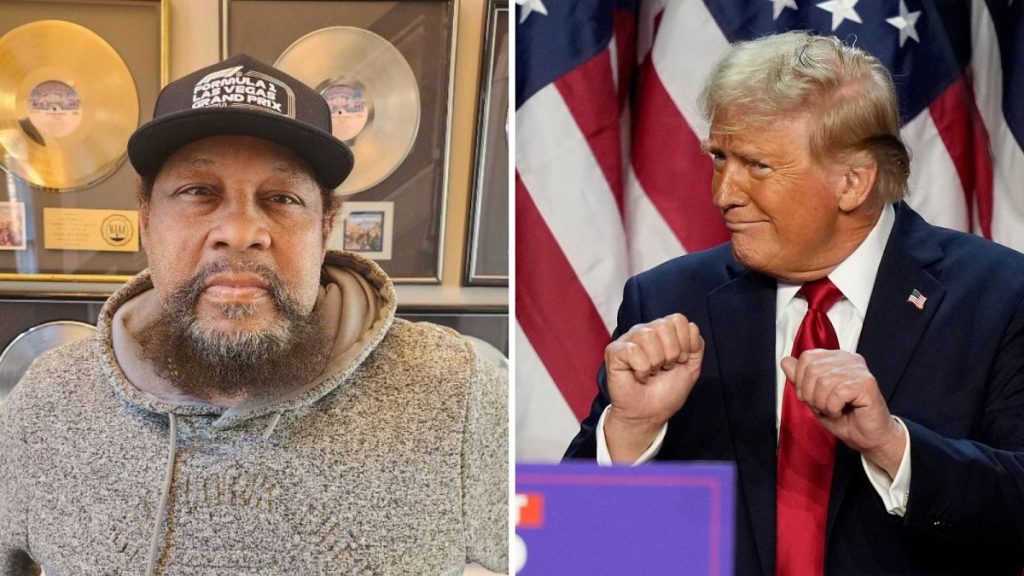Donald Trump’s campaign rallies have often been a source of controversy, particularly regarding his unabated use of music from various artists without seeking permission. Many musicians have expressed their disapproval, explicitly requesting that Trump refrain from playing their songs at these events. This dispute became increasingly prolific this year, with notable artists such as Céline Dion, Beyoncé, and Jack White publicly condemning Trump’s practices. The estate of Isaac Hayes even initiated legal action as a prominent example of these grievances. Within this contentious landscape, the Village People, especially the lead singer and co-writer Victor Willis, found themselves in a unique position regarding the use of their iconic song “Y.M.C.A.”
Initially, the Village People requested Trump stop using “Y.M.C.A.” at his rallies, particularly due to concerns over his political stance and the song’s cultural significance. However, Willis retracted this stance upon witnessing Trump’s enthusiasm for the track. He noted that the President-elect appeared to genuinely enjoy the song, which led him to a more ambivalent position. Despite receiving over 1,000 complaints related to Trump’s usage of “Y.M.C.A.,” Willis ultimately decided to allow the song’s continued use by the campaign, suggesting a sense of community with the American public and an understanding of the promotional benefit that Trump’s rallies could provide.
In a revealing Facebook post, Willis articulated that he felt disinclined to deny Trump the opportunity to use the song, especially given the substantial financial boost it afforded him. The track ascended to the top of the Billboard charts—achieving a #1 position more than 45 years after its original release—largely due to its frequent play at Trump’s events. Willis expressed gratitude for the unexpected resurgence of the song in popular culture and indicated that allowing its use had been financially profitable for him, suggesting a pragmatic viewpoint on the intersection of politics and music.
Furthermore, Willis took the opportunity to clarify misconceptions about “Y.M.C.A.” being labeled as a “gay anthem.” He asserted that when he wrote the song, he was unaware of the space being associated with the LGBTQ+ community, stating that terms used in the lyrics were merely reflections of 1970s slang among black men. Willis emphasized that the lyrics were not intended to carry any sexual connotation and urged audiences to reconsider their interpretations. The artist’s insistence on this point highlights a broader discourse on how cultural artifacts can be appropriated and redefined over time.
Despite acknowledging the song’s adoption by the LGBTQ+ community, Willis expressed concern over the implications of labeling “Y.M.C.A.” exclusively as a gay anthem, suggesting that it damages the song’s integrity and original context. He further threatened legal action against news organizations that persist in classifying the song in this manner, indicating a willingness to protect his artistic legacy. Such a stance underscores the complexities involved when art intersects with specific social narratives.
With “Y.M.C.A.” being rooted in the backdrop of disco culture and later embraced by LGBTQ+ communities, the broader implications of this conversation resonate well beyond the music itself. Victor Willis’s engagement embodies a unique blend of nostalgia, modern political strategy, and cultural identity. As he prepares to take action against media entities misrepresenting his work, the discourse surrounding the song reaffirms the fluid nature of music and its meanings across generations. This situation serves as a reminder of the ways in which art can transcend intentions, taking on new dimensions influenced by contemporary social contexts.














